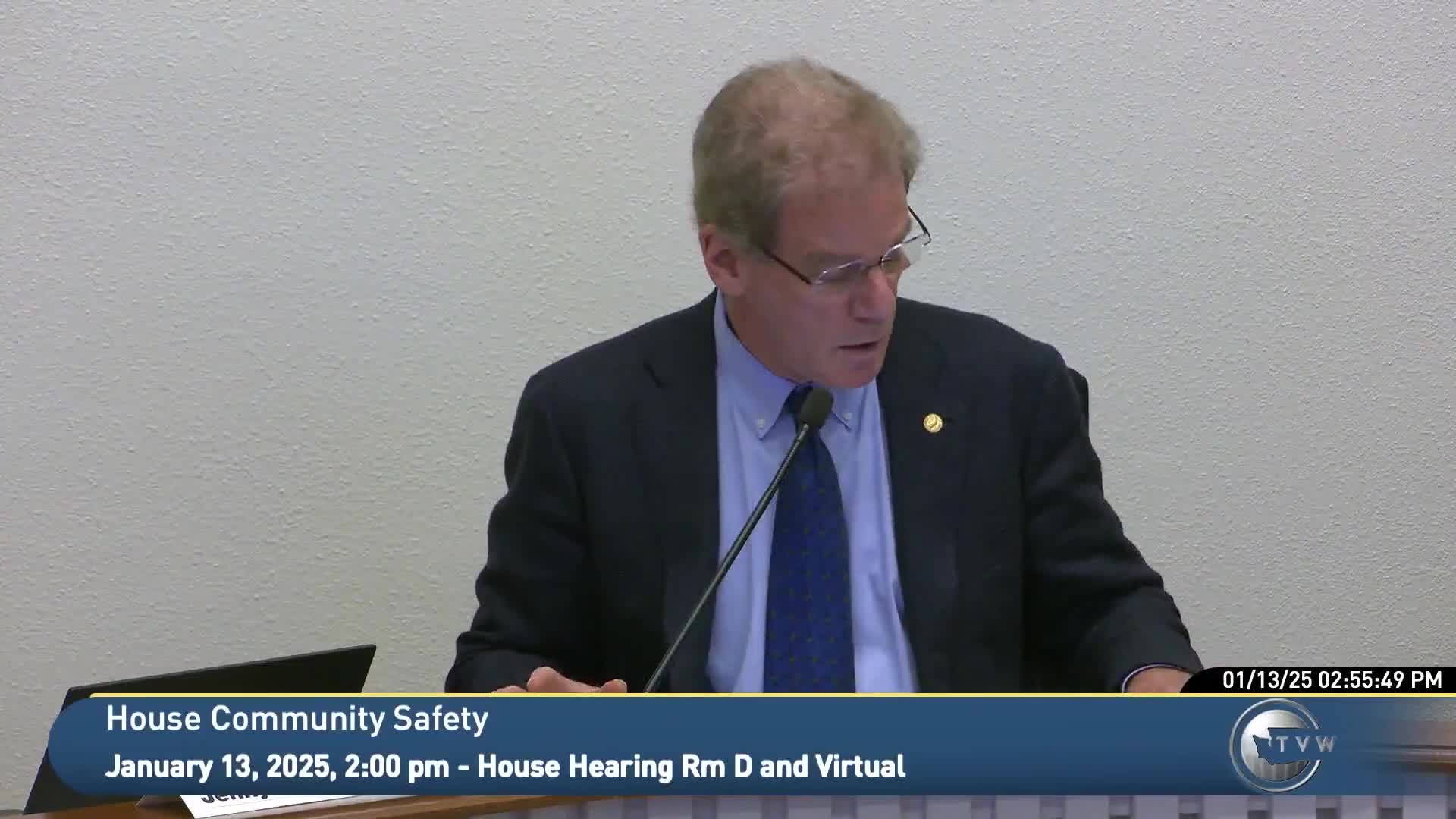Committee hears HB 1149 to expand animal‑cruelty offenses, strengthen penalties and seizure authority
Get AI-powered insights, summaries, and transcripts
Subscribe
Summary
House Bill 1149 would broaden criminal definitions for animal cruelty and animal fighting, add post‑conviction ownership bans for animal fighting, change ranking on the sentencing grid, and reduce the time before bystander intervention from 36 to 24 hours. Supporters from animal‑welfare groups, prosecutors and the Gambling Commission backed the
Representative April Hackney, sponsor of House Bill 1149, told the Community Safety Committee the bill is intended to strengthen public safety and close gaps in Washington’s animal‑cruelty laws.
Michelle Rusk, committee staff, summarized the measure: it expands the criminal offense of animal fighting to include aiding or abetting, ranks animal‑fighting offenses on the state sentencing grid, broadens the animal‑cruelty offense to cover persons as well as owners in certain cases, makes post‑conviction bans on animal ownership apply to animal‑fighting convictions, changes civil penalties to criminal penalties for violating ownership bans, expands law‑enforcement seizure authority when probable cause exists, and shortens the time before a third party may intervene for a confined animal from 36 hours to 24 hours.
Supporters included Kirsten Gregory of Posadas Safe Haven, who cited research on correlations between animal cruelty and other violent crime, and Sarah Hawk of Joint Animal Services and the Washington Federation of Animal Care and Control Agencies, who urged stronger, consistent sentencing and permanent post‑conviction ownership bans to prevent offenders from immediately reacquiring animals after conviction.
Deputy Prosecutor Nathaniel Bloch (Skagit County) told the committee the bill closes prosecutorial and investigatory loopholes: he described cases where animals showed near‑starvation but existing statutes made convictions difficult, and he said allowing warrants and seizure authority when probable cause exists would help enforce ownership prohibitions that are now difficult to police.
Tricia Gullian testified for the Washington State Gambling Commission, saying its agents frequently encounter animal‑fighting operations and support the bill’s enhanced penalties and enforcement tools. The commission described animal fighting as often co‑occurring with other crimes such as drug trafficking and illegal gambling.
The Washington State Sentencing Guidelines Commission, represented by coordinator Carrie Anne Yetzer, opposed one specific provision that would rank animal fighting with intentional mutilation at seriousness level 4 on the sentencing grid. Yetzer said the commission had recommended ranking those offenses at seriousness level 3 in prior reviews and cautioned that elevating to level 4 would be incongruent with other level‑4 offenses.
Committee members asked detailed questions about the bill’s interaction with accepted agricultural husbandry practices and livestock exemptions; staff and witnesses confirmed the bill includes language excluding “accepted husbandry practices” used in commercial raising or slaughtering of livestock and poultry.
No committee vote was taken; the session was a public hearing to gather testimony and questions. Several witnesses indicated willingness to continue technical conversations on grid ranking and drafting details.
